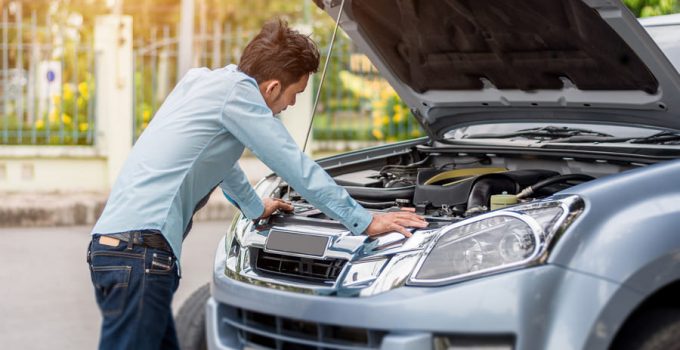
A jerking, vibrating or wobbling steering wheel is a problem for thousands of drivers real annoyance. It is one of the most annoying and common problems that can arise. A variety of causes can underlie the problem. These can range from the mundane, like a bad road surface or worn tires, to the serious, like an engine malfunction. So let's take a closer look at the problem.
Contents
Why does my car shake? The seven most common reasons
As mentioned above, old, worn and dry tires can make your steering wheel wobble and your car vibrate. As the only part of the car in contact with the road surface, they are the most common and obvious source of excessive vibration. That being said, they are subject to a variety of impairments that can significantly reduce their lifespan. Flat tires themselves can be the cause of shimmy or lead to damaged wheels, the second reason why your car is jerking.

Unbalanced or damaged wheels can also be the reason. Indeed, wheels are not perfectly round. Metal walls can be slightly thicker or thinner in places, resulting in deviations from a perfectly round rotation. These deviations are called beat. The vibration caused by unbalanced wheels is clearly noticeable, especially when driving at high speed. Even the smallest of mistakes can make your car shake, not to mention bent wheels.
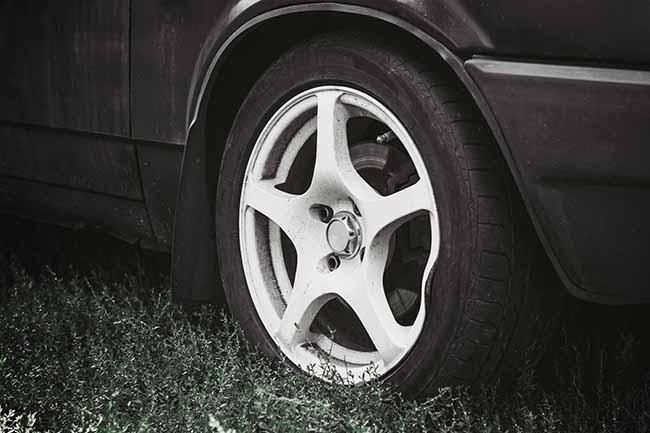
Brake problems
Another cause of chatter is brake problems. If vibrations appear or become more intense when braking, you'll know where to look. A deformed brake rotor or even several can usually cause headaches. When braking, the brake pads and calipers are pressed against the rotor. If its surface is uneven due to wear or corrosion, the brakes will grip unevenly, causing the car to shake.
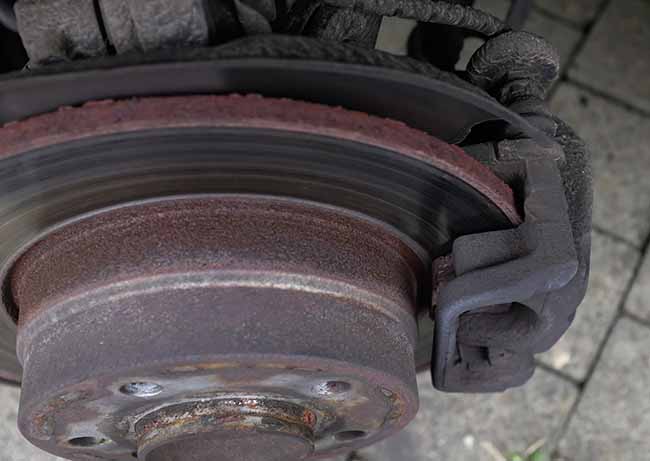
Axis problems
However, not only tires, wheels or rotors can be the source of the vibration, but also the axles. Crashes and breakdowns also happen and can cause axles, for example, to bend. If the vibration increases when you accelerate, you should look at the underside of your car. Also check the constant velocity joints and axle boots. Cracked boots let dirt and dust in from the road, damaging the joints and causing vibration.
Axle problems aren't the only ones causing your car to jerk when you accelerate. Defective engine mounts have the same effect. These spare parts are made of metal and rubber. Your main goal is to keep the engine in place and not wobble. Rubber dampens the vibrations. However, if it gets torn or too dry, it cannot perform its function properly. Worn metal can no longer grip securely either.
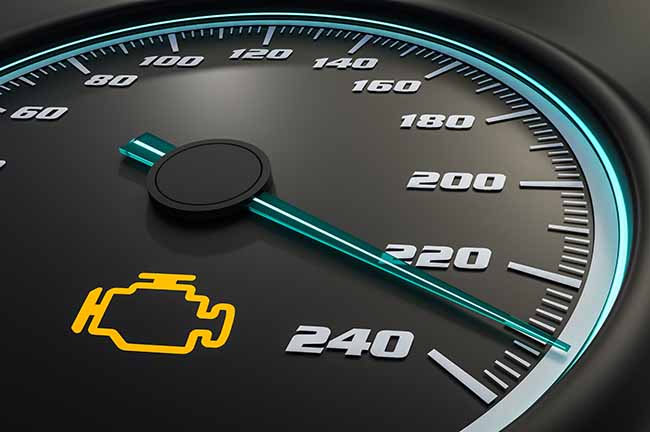
Misfire
Unfortunately, juddering under the hood can be a sign of engine problems. The most common problem is a misfire, which in turn can be caused by various factors such as: B. poor fuel quality, defective spark plugs or clogged filters. A check engine light then usually lights up on the dashboard.
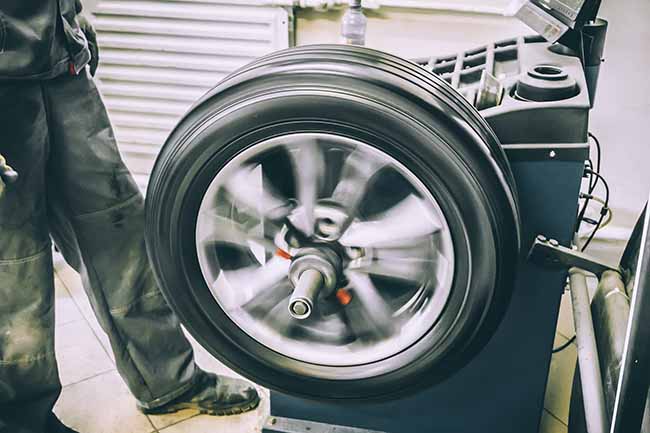
Problems with the steering system
It is possible that the vibration is coming from the steering wheel. Responsiveness may also be limited. In this case, it is always a good idea to check the power steering and steering components. Note that vibrations usually appear when you turn the steering wheel, even when the car is parked. Another sign that the problem is related to failed steering components is uneven tire wear. This can e.g. B. caused by worn pull rods.
What to do if the car shakes – possible solutions
First you need to find the source of the vibration. A visual inspection can be useful. Check your tires. They must be replaced when they are worn, roll unevenly, or are “out of round”. It is also worth checking the tire pressure. Use a tire inflator if it's too low to ensure they are properly inflated.
Let's take a look at the wheels if your tires are okay. Mud and dirt can get stuck on the wheels and upset the balance. All you have to do is wipe them off. If that doesn't help, you should see an auto mechanic. Using special equipment, he will check and balance your wheels by attaching some wheel weights. Damaged and bent wheels usually need to be replaced.
Worn rotors are likely to be the cause if your car only starts to jerk when you brake. If your rotors are not badly damaged, they can be cleaned and repaired. Otherwise they can only be exchanged. Brake calipers and pads also need to be checked. Worn spare parts can also be repaired if necessary. You should check that everything is properly lubricated.
Check the axes carefully if you suspect they are behind the problem. Pay special attention to the constant velocity joints and boots. Make sure there is no spillage and that all clamps are secure. If you notice play in the joints or find that the boots are torn, you should have your car checked at a workshop. Some parts may need to be replaced.
A workshop check is also necessary if the vibration appears when you turn and your steering wheel shakes. Also, if you find that power steering fluid is leaking, you should definitely see an auto mechanic.
Faulty engine mounts are fairly easy to diagnose. There is no vibration when your car is in neutral or parking mode, but there is vibration when you step on the gas pedal. Slight movement of the motor is fine, but a lot of jerk is a sign your motor mounts need replacing.
If you experience vibration due to misfire, make sure the fuel you are using is of good quality. Bad fuel can clog your fuel filter, causing the air-fuel ratio to become lean. You should also clean the air filter. A misfire can also be caused by defective spark plugs. Make sure you replace them at the manufacturer's recommended intervals.
These are the most common reasons why your car might shake. Whatever the reason, it is always advisable to visit an auto repair shop. Identifying vehicle problems early will help you avoid bigger problems and ultimately higher repair costs.
